Русские в британских университетах. Опыт интеллектуальной истории и культурного обмена - [3]
«As I remember, there are always some Russians in Cambridge. Through good chance I was acquainted with several of the Russians who are remembered with great affection in Cambridge.
At the head of my list must be the famous Russian dancer Lydia Lopokova, to whom my uncle the economist John Maynard Keynes was married in 1925, and to whom by a curious coincidence she had written on 29 February 1924. “I saw an atom this afternoon. I was taken to the Cavendish Laboratory where the physicists make their extraordinary experiments, and two companions explained things to me. It was interesting. One of the two was a young Russian called Peter Kapitza. He had made a wonderful instrument and seemed very clever, I thought”.
I do not think that Maynard Keynes remained in close contact with Peter Kapitza, but Lydia had a wide circle of devoted friends in Cambridge, whom she delighted with the frankness and wisdom of her comments, not only on theatrical and artistic matters but also on many other topics, delivered in her own special version of an English often deliberately misused but always sure to charm. A few years after her husband’s death in 1946, she moved permanently to his house in Sussex, where we visited her regularly until she died in 1981.
In July 1921 a young Russian physicist Piotr Leonidovich Kapitza came to Cambridge on a scientific visit and went to the Cavendish Laboratory to talk to Ernest Rutherford. He was cordially received, but when he then enquired whether he might work in the Laboratory for a few months, Rutherford replied that regrettably there was not enough space for him. It is related that Kapitza countered unexpectedly by asking at what accuracy Rutherford aimed in his experiments? When told that the answer was 2 or 3 %, Kapitza cheerfully pointed out that since there were already about 30 researchers at the Cavendish, one more would scarcely be noticed because he would be within the experimental error. This ingenious response was well received, and Kapitza quickly became enough of a favourite of the formidable Rutherford to be allowed always to address him straight to his face as “the Crocodile”, because of his habit in pursuit of a scientific problem of going straight forwards with gaping jaws.
Kapitza was soon admitted to Trinity College, where he became a very popular Research Fellow, and in 1929 he was elected to Fellowship of the Royal Society. His researches flourished, first through his invention of a new technique for generating briefly very large magnetic fields, and then for his elegant experiments on the behaviour of helium at very low temperatures. But unfortunately, at the end of one of his regular visits to the Soviet Union in 1934, he was firmly refused permission to return to Cambridge, and was obliged to remain for the rest of his life in Moscow conducting his researches at a new Institute for Physical Problems to which the instruments that he had designed were transferred. In 1966 he was permitted to return to England after a lapse of 32 years to receive the Rutherford Medal of the Institute of Physics, and I was happy to have an opportunity of talking to him at Churchill College, where his old friend John Cockcroft had become Master, and where he was elected in 1974 to an Honorary Fellowship. In 1978 he was belatedly awarded the Nobel Prize for his work on low temperature physics, and in 1984 he died in Moscow at the age of 87.
In 1924 Abram Samoilovitch Besicovitch left Russia, and after working for a year in Denmark came to England, where with the support of the eminent mathematician G. H. Hardy he made his way to Cambridge, and in 1927 became a University Lecturer, succeeding to the prestigious Rouse Ball Professorship in Mathematics in 1950. Three years after his arrival in Cambridge he was elected to a Fellowship at Trinity College, where he remained as a much-loved figure for the next 40 years. One characteristic that he retained to the end of his days was a firm refusal to admit to the existence of the definite article in the English language, and it is said that during one of his lectures an undergraduate tittered at its persistent absence. “Gentlemen”, said Besicovitch, “there are fifty million Englishmen speak English you speak; but there are five hundred million Russians speak English I speak”. The tittering quickly stopped. Well do I remember the passionate speech that I heard him make in 1949 defending an aged avenue of lime trees at a meeting of the Fellows in Trinity, when he considered that his juniors were overhasty in wanting them to be replaced. He always felt strongly about the state of the College gardens, and during the 1939–1945 war when gardeners were in short supply he was regularly to be seen helping to cut the grass in the courts with a small hand mower. It was typical of his thoughtfulness that on his death in 1970 he made bequests to all of the bed makers who had looked after him when he lived in Trinity.
It was in 1938 when we were both undergraduates at Trinity that I first met Dimitri Dimitrievich Obolensky. He had been educated partly in France and partly in England, and differed in one respect from the other Russians on my list in speaking an elegant English that could not be faulted. He became a leading authority on the mediaeval history of Eastern Europe, and particularly on religious and cultural problems. After graduating brilliantly, he was briefly a lecturer in Russian in Cambridge, but in 1950 he was attracted to Oxford by a Readership. There he remained for the rest of his life as a Student (Fellow) of Christchurch, in due course with a personal Professorship in the University. But it was a pleasure to see him occasionally in Trinity, which made him an Honorary Fellow in 1991.
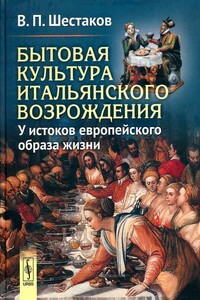
Итальянский Ренессанс заложил основы европейской культуры. В эту эпоху появилась новая гуманистическая философия, были развиты принципы гуманистической этики, обосновывающей достоинство человека и его центральное положение в мире, возникли новые университеты и были достигнуты новые вершины в живописи, поэзии, литературе. В эпоху Возрождения наука раскрывала свои результаты для всех, а с изобретением книгопечатания она стала открыто служить повседневной жизни. Отныне научное сознание не противопоставляет себя обыденному, что относится в особенности к итальянским городам, на благо которых работали ученые.
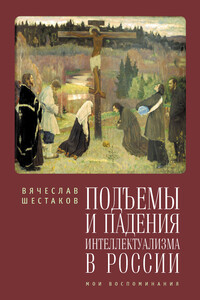
В настоящей книге автор, описывая свою жизненную и научную биографию, анализирует потенциал интеллектуальной мысли в России, описывает ее спады и подъемы, достижения и утраты. Книга рассчитана на читателей, которые интересуются жанром мемуарной литературы.
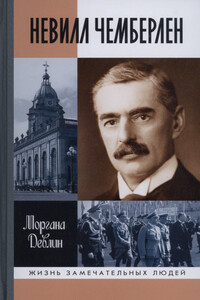
Фамилия Чемберлен известна у нас почти всем благодаря популярному в 1920-е годы флешмобу «Наш ответ Чемберлену!», ставшему поговоркой (кому и за что требовался ответ, читатель узнает по ходу повествования). В книге речь идет о младшем из знаменитой династии Чемберленов — Невилле (1869–1940), которому удалось взойти на вершину власти Британской империи — стать премьер-министром. Именно этот Чемберлен, получивший прозвище «Джентльмен с зонтиком», трижды летал к Гитлеру в сентябре 1938 года и по сути убедил его подписать Мюнхенское соглашение, полагая при этом, что гарантирует «мир для нашего поколения».
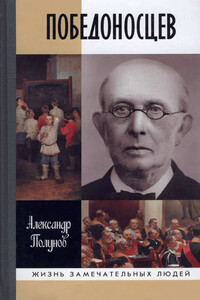
Константин Петрович Победоносцев — один из самых влиятельных чиновников в российской истории. Наставник двух царей и автор многих высочайших манифестов четверть века определял церковную политику и преследовал инаковерие, авторитетно высказывался о методах воспитания и способах ведения войны, давал рекомендации по поддержанию курса рубля и композиции художественных произведений. Занимая высокие посты, он ненавидел бюрократическую систему. Победоносцев имел мрачную репутацию душителя свободы, при этом к нему шел поток обращений не только единомышленников, но и оппонентов, убежденных в его бескорыстности и беспристрастии.
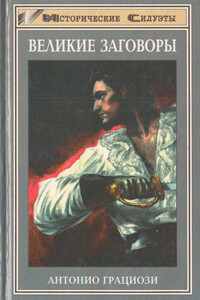
Заговоры против императоров, тиранов, правителей государств — это одна из самых драматических и кровавых страниц мировой истории. Итальянский писатель Антонио Грациози сделал уникальную попытку собрать воедино самые известные и поражающие своей жестокостью и вероломностью заговоры. Кто прав, а кто виноват в этих смертоносных поединках, на чьей стороне суд истории: жертвы или убийцы? Вот вопросы, на которые пытается дать ответ автор. Книга, словно богатое ожерелье, щедро усыпана массой исторических фактов, наблюдений, событий. Нет сомнений, что она доставит огромное удовольствие всем любителям истории, невероятных приключений и просто острых ощущений.
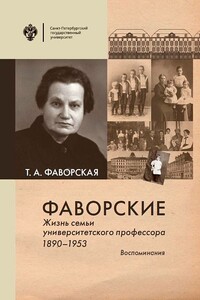
Мемуары известного ученого, преподавателя Ленинградского университета, профессора, доктора химических наук Татьяны Алексеевны Фаворской (1890–1986) — живая летопись замечательной русской семьи, в которой отразились разные эпохи российской истории с конца XIX до середины XX века. Судьба семейства Фаворских неразрывно связана с историей Санкт-Петербургского университета. Центральной фигурой повествования является отец Т. А. Фаворской — знаменитый химик, академик, профессор Петербургского (Петроградского, Ленинградского) университета Алексей Евграфович Фаворский (1860–1945), вошедший в пантеон выдающихся русских ученых-химиков.
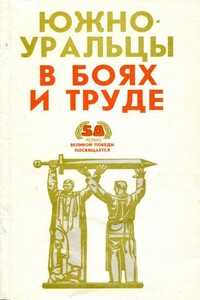
В книге рассказывается история главного героя, который сталкивается с различными проблемами и препятствиями на протяжении всего своего путешествия. По пути он встречает множество второстепенных персонажей, которые играют важные роли в истории. Благодаря опыту главного героя книга исследует такие темы, как любовь, потеря, надежда и стойкость. По мере того, как главный герой преодолевает свои трудности, он усваивает ценные уроки жизни и растет как личность.
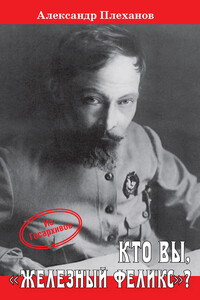
Оценки личности и деятельности Феликса Дзержинского до сих пор вызывают много споров: от «рыцаря революции», «солдата великих боёв», «борца за народное дело» до «апостола террора», «кровожадного льва революции», «палача и душителя свободы». Он был одним из ярких представителей плеяды пламенных революционеров, «ленинской гвардии» — жесткий, принципиальный, бес— компромиссный и беспощадный к врагам социалистической революции. Как случилось, что Дзержинский, занимавший ключевые посты в правительстве Советской России, не имел даже аттестата об образовании? Как относился Железный Феликс к женщинам? Почему ревнитель революционной законности в дни «красного террора» единолично решал судьбы многих людей без суда и следствия, не испытывая при этом ни жалости, ни снисхождения к политическим противникам? Какова истинная причина скоропостижной кончины Феликса Дзержинского? Ответы на эти и многие другие вопросы читатель найдет в книге.